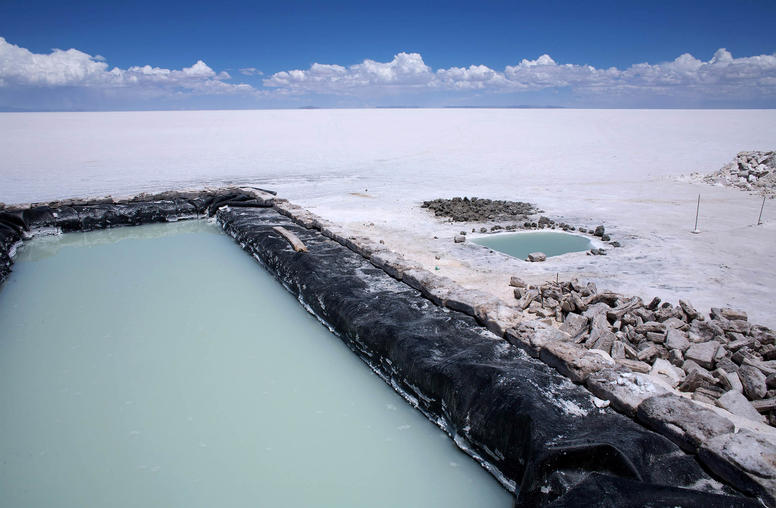Truth Commission: Bolivia
Truth Commission: National Commission for Investigation for Forced Disappearances
Duration: 1982 - 1984
Charter: Supreme Decree No. 19241
Commissioners: 8
Report: No final report
Truth Commission: National Commission for Investigation for Forced Disappearances (Comisión Nacional de Investigación de Desaparecidos)
Dates of Operation: October 28, 1982 – mid-1984 (less than 2 years; the commissions was disbanded by the government a year short of fulfilling its mandate.)
Background: In 1964, a military junta took power, followed by a succession of presidents picked by the military. The most well known were General Hugo Banzer Suarez (1971 - 1978) and General Luis García Meza Tejada (July 1980 - August 1981). Notorious for human rights abuses, drug trafficking and economic mismanagement, García Meza Tejada was forced from power in 1981 in a military rebellion. Three successive military governments in 14 months failed to maintain control over Bolivia’s severe political and economic instability. The military finally empowered Congress to appoint Hernan Siles Zuazo as President on October 10, 1982. As part of his reform agenda, he issued a decree establishing the National Commission for Investigation of Forced Disappearances on October 28, 1982.
Charter: Supreme Decree No. 19241, October 28, 1982, published in the Gaceta Oficial, 30 October 1981
Mandate: The National Commission for Investigation for Forced Disappearances was mandated to investigate the disappearance of citizens during the period of 1964 to 1982. 1964 marked the year when a military junta overthrew elected President Estenssoro of the Revolutionary Nationalist Movement (MNR), and in 1982, the series of Bolivian military dictatorships finally ended.
Commissioners and Structure: The eight-person panel was headed by the under secretary of the Ministry of the Interior and the commission’s vice-president was a representative of the legislative power. The commission also included representatives of the Human Rights Permanent Assembly and the “Association of Relatives of the Disappeared Detainees and Martyrs for National Liberation of Bolivia” (ASOFAMD). It had six additional staff. Carmen Loyola Guzmán, head of the ASOFAMD, was the commission’s executive secretary.
Report: Since the commission disbanded, the former executive secretary of the commission, Carmen Loyola Guzmán, has tried to gain access to the commission’s materials with the hope of writing a report. To date, a final report has not been published and the current physical location of the commission’s records is unknown. Assuming that the records were not destroyed, the three possible locations are the archives of the Ministry of the Interior, the presidential archives, or the Bolivian Library of the Congress. Attempts to recover the records have so far been unsuccessful.
Findings:
Conclusions
- Even though the commission disbanded before the end of its stated term, 155 cases of disappearances were documented. In some cases, the commission located the remains of disappeared people, but most cases were not thoroughly investigated.
- No final report was issued after the commission disbanded.
Subsequent Developments:
Prosecutions
- Trials against more than fifty former officials and paramilitary agents of the government of Luis García Meza Tejada (1980 - 1981) began in the mid-1980s. In 1993, Meza was convicted for serious human rights violations together with 52 out of 55 accused collaborators. In 1995, he was extradited to Bolivia from Brazilian exile, and he is still serving a 30-year prison sentence. While these trials were not based on evidence gained by the National Commission for Investigation for Forced Disappearances, the debates surrounding the work of the commission led numerous civil society organizations and political figures to institute the proceedings.
Special Notes: The National Commission for Investigation for Forced Disappearances was Latin America’s first truth commission. Torture, illegal detention and other abuses were noticeably not covered by its mandate.
The commission faced serious problems to fund its activities and it did not have access to the financial and technical means to correctly identify exhumed bodies.
Sources:
Defensor del Pueblo. “Desaparición Forzada: Ticona Estrada, La Familia que no Descansa”, Desenlaces No. 3, p. 305-318. (accessed February 11, 2011).
Hayner, Priscilla B. "Fifteen Truth Commissions-1974 to 1994: A Comparative Study." Human Rights Quarterly 16, no. 4 (1994): 597-655.
Hayner, Priscilla B. Unspeakable Truths: Facing the Challenge of Truth Commissions. New York: Routledge, 2002.
Peterson, Trudy Huskamp. Final Acts: A Guide to Preserving the Records of Truth Commissions. Washington, D.C.; Baltimore: Woodrow Wilson Center Press; Johns Hopkins University Press, 2005. Available at http://www.wilsoncenter.org/book/final-acts-guide-to-preserving-the-records-truth-commissions (accessed October 26, 2011).
TRIAL (Track Impunity Always). "National Commission of Enquiry into Disappearances- Bolivia." Track Impunity Always (TRIAL). (accessed June 11, 2009).


